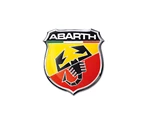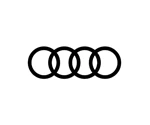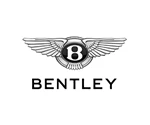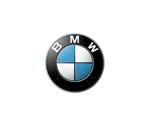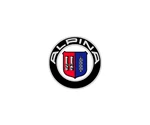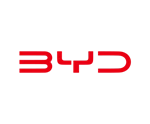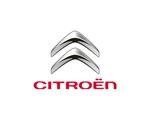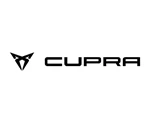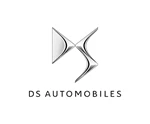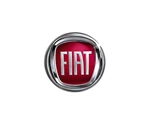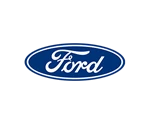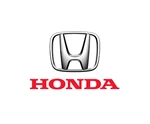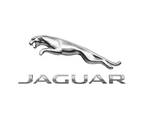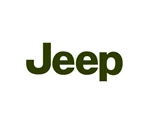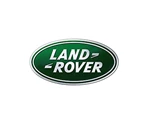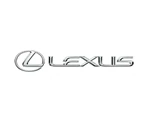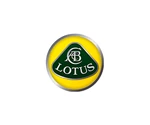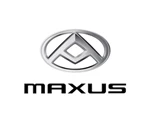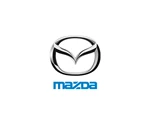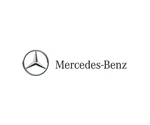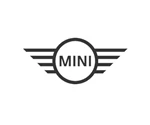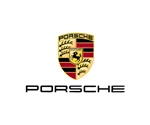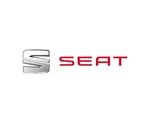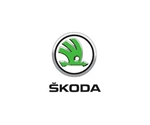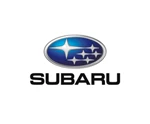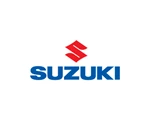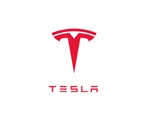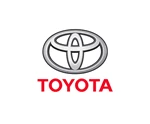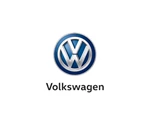Car Leasing at AMT Auto UK
Vehicle Leasing Offers
Browse by brand
Pick a brand to see our best deals.

Automotive expertise
With over 30-years of experience in the automotive industry, AMT Auto brings unmatched expertise and knowledge to every leasing deal. Our team leverages strong relationships with top manufacturers and dealerships to secure the best vehicles and competitive prices for our customers. Whether you're looking for a compact city car, a family SUV, or a high-end luxury vehicle, our dedicated professionals are here to guide you through the entire leasing process, ensuring you find the perfect fit for your needs. Check out our car leasing options for more information.

Tailored Flexibility
Our flexible leasing terms are designed to adapt to your lifestyle and business needs. With customisable options for contract lengths, annual mileage, and maintenance packages, you can tailor your lease plan to suit your specific requirements. At AMT Auto, we understand that circumstances change, and our customer support team is always ready to assist you in adjusting your plan. Discover our customisable car lease agreements for a leasing solution that fits perfectly with your needs.

Unbeatable value
At AMT Auto, we are committed to providing exceptional value with every lease. Our all-inclusive packages cover, maintenance, road tax, and breakdown cover, giving you peace of mind and simplifying your budgeting. We regularly offer special deals and transparent pricing with no hidden fees, ensuring you get the best possible price. Whether you need a personal car, a business fleet, or a luxury vehicle, explore our affordable car leasing to find the best value for your money.
Trusted, Reliable Customer Service
Supported by hundreds of independent, verified Feefo reviews.
About Leasing
Leasing FAQs
How does leasing a car work?
A car lease is an agreement between the funder and a customer which allows you to drive a brand-new car for a fixed term. You pay an agreed initial payment plus regular monthly payments at a set amount for the term of the contract. You return the car at the end of the car lease contract.
Should I lease or buy a car or van?
Leasing has always been a popular option as people look to avoid vehicle depreciation and one-off large repair bills. Essentially, leasing a car or van allows you to spread the cost effectively. People may also find it’s an affordable way to get a higher value vehicle than they could afford if they were to buy it outright.
Why should I lease a vehicle from AMT?
We’ve been established for over 30-years, and in that time, we have built up extensive knowledge of the leasing marketplace and have developed strong relationships with manufacturers, dealerships, and funding companies Partners. Our financial standing and size gives us strong buying power – we purchase stock vehicles and larger volumes of vehicles at very competitive prices which means we can offer highly competitive lease deals to our customers. We can also offer some in-house funding if credit is an issue. For example, if you’ve just started a company and would struggle to get credit from a funder.
Who is the registered owner and keeper of a lease vehicle?
If you take out a contract hire agreement the finance company is the registered owner and keeper.
How long is the vehicle contract hire or lease period?
Our contracts range from 12 to 60 months depending on the vehicle and contract chosen. If you want to try a new car for a period before committing to a 12 month+ car lease contract, we can offer short term leasing from 3-months to 12-months, inclusive of maintenance, vehicles available immediately from our wholly owned premium and specialist fleet.
What’s the difference between contract hire and leasing?
There isn’t much difference between contract hire and leasing – essentially, they mean the same thing. Contract hire is generally the term used when describing a business leasing agreement.
Should I take out a personal leasing or business leasing contract?
Businesses don’t pay VAT on leasing contracts, so this can be a good way to reduce your costs. However, if you have a limited company, depending on the company car tax implications, you may prefer to lease a car personally. If you’d like some advice on what’s best for your circumstances, just give us a call.
Can I take my chosen vehicle for a test drive?
Generally, we can’t offer test drives as we don’t have a traditional forecourt like a dealership. However, we do have relationships with dealers around the UK who we may be able to recommend for test drives. We also have our own fleet of rental cars across four AMT Auto vehicle rental branches. So, if you live near one, we may have the vehicle you want on our fleet. Just ask us how we can help you with test drives and make sure you come back to us when you know what you want so we can get you the best deal.
Can I get a part exchange for my car?
We can offer a part exchange service. Just complete our online form or speak to one of our account managers who will be able to help you.
How soon can I get my car?
We have a range of vehicles in stock which can be delivered to you within a few weeks. However, this is subject to acceptance of any finance agreements by your chosen funder and any cooling off periods applicable to personal contract hire customers. For other vehicles, we will go to our dealers in the first instance, but if a factory order is necessary, this can take much longer; particularly if a car is a new model or a facelift model. Our customer service team maintain regular contact with you to update you on delivery timescales as they get information from dealers and manufacturers.
Who supplies the vehicles?
All our vehicles are supplied through the relevant vehicle manufacturers UK dealer network.
Can I get my lease vehicle delivered?
We offer free UK mainland delivery, where your vehicle will be driven to your required destination. Delivery can be made by a transporter – but that will incur a fee. Collection depends on the type of contract taken.
Can I specify a time I’d like for my vehicle to be delivered?
You can request a morning or afternoon delivery slot for your new vehicle to be delivered. If you need a specific time, let us know and we’ll do our best to meet your request.
How long is the contract hire or lease period?
Our contracts range from 12 to 60 months depending on the vehicle and contract chosen. If you want to try a new car for a period before committing to a 12 month+ contract, we can offer short term leasing from 3 months to 12 months, inclusive of maintenance, vehicles available immediately from our wholly owned premium and specialist fleet.
What’s the difference between contract hire and leasing?
There isn’t really any difference between contract hire and leasing – essentially, they mean the same thing. Contract hire is generally the term used when describing a business leasing agreement.
Should I take out a personal leasing or business leasing contract?
Businesses don’t pay VAT on leasing contracts, so this can be a good way to reduce your costs. However, if you have a limited company, depending on the company car tax implications, you may prefer to lease a car personally. If you’d like some advice on what’s best for your particular set of circumstances, just give us a call.
Can I take my chosen vehicle for a test drive?
Generally, we can’t offer test drives directly as we don’t have a traditional forecourt like a dealership. However, we do have relationships with dealers around the UK who we may be able to recommend for test drives. We also have our own fleet of rental cars across 4 AMT Vehicle Rental branches. So if you live near one, we may have the vehicle you want on our fleet. Just ask us how we can help you with test drives and make sure you come back to us when you know what you want so we can get you the best deal.
Will you part exchange my car?
We can offer a part exchange service. Just complete our online form or speak to one of our account managers who will be able to help you.
What is the initial deposit on a car lease?
With car leasing, a deposit is referred to as an advance payment and is non-refundable. While a minimum one month’s advance payment is available, typically an initial advance payment equivalent to three monthly payments is required. The larger the advance payment you make, the lower your monthly payments will be. When viewing a vehicle, use the term configurator to understand how advance payments can affect your monthly payment.
When are the advance payment and monthly payments taken?
Dates for the advance payment and monthly payments are dependent upon the finance provider. Some providers take the advance payment within 14 days of delivery of the vehicle, whilst others take payment before delivery is booked. Monthly payments are usually taken one month after delivery of the vehicle on a date set by the finance provider.
Who provides the funding for your lease vehicle options?
We have established long-term partnerships with Arval, Lex, Leasys, Novuna, Santander and VWFS.
Do lease vehicles from AMT Auto include a warranty?
Yes, all our vehicle lease options come with the full UK manufacturer’s warranty for your piece of mind.
What if I need a replacement for my lease vehicle?
If your contract included an optional relief vehicle, this can be arranged by calling the maintenance number provided by the finance company.
Is roadside assistance included?
Yes, AMT Auto lease vehicles include either 12-months or 3-years’ breakdown recovery, depending on the manufacturer.
What happens in the event of a breakdown?
Within the car or van book pack there will be an emergency number to contact. This service is available 24/7.
What is the agreed annual mileage limit on my leased vehicle?
We will agree an annual mileage limit with you before you take out the contract. The mileage band ranges from 5,000 up to 50,000 miles depending on the funder.
What if I exceed the agreed mileage on the vehicle lease contract?
If you go over the agreed mileage limit, you will incur an excess mileage charge. The price you will pay is outlined on your original quotation and official finance document. Any mileage over the contract is charged at the excess mileage rate (charged in pence per mile). As an example, if the excess was 4p per mile then for 1000 miles over contract you would be charged £40.
Why does the price increase with higher annual mileage?
The more miles you drive, the greater the depreciation, reducing the car’s value, similar to owning a vehicle. Consequently, the funder charges more to cover the loss in value.
Will the lease contract include vehicle excise duty?
Yes, either for the duration of the contract or for 12-months. This will depend on the type of vehicle lease contract taken.
Do leased vehicles come with insurance?
The vehicle lease contract doesn’t include insurance. However, AMT Insurance Solutions can offer you competitive rates. Just inform your account manager that you’re interested in car insurance, and they can arrange a competitive quote for you.
Is maintenance included on a leased vehicle?
Maintenance is an optional cost and includes all servicing, tyres, brakes, exhaust, battery and labour. For further details please ask a member of the team.
What happens when I need a lease vehicle serviced or repaired?
If you opted to include maintenance in your lease contract, you will have received a maintenance contact number from the finance company. From there, you can book the vehicle into a local approved garage.
What are my options at the end of the leasing contract?
This depends on the type of contract taken but usually, you can either hand the car back, extend the contract, or purchase the vehicle from the finance company or third party depending on the funder.
What happens at the end of the car lease contract?
At the end of the vehicle lease you can either arrange for it to be collected, or you can extend the contract on a monthly basis depending on the funder.
Can I cancel my vehicle lease early?
Contact AMT to request an early contract termination.
Can I buy my lease vehicle when my contract ends?
This option is available on some of our finance options. One of our account managers can provide you with more information if this of interest to you.



















